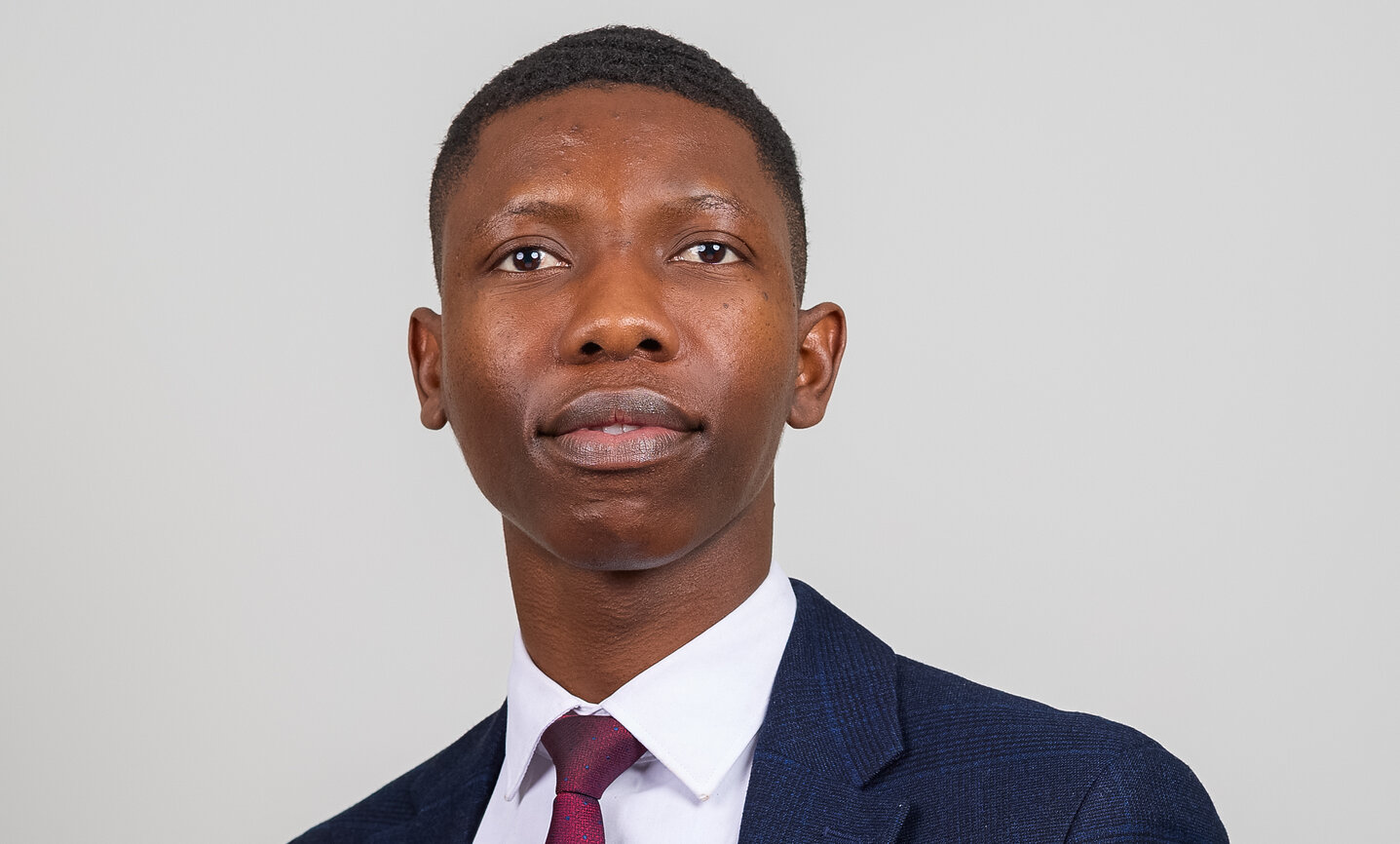
Godspower Major talks about his work to boost biodiversity in oil palm plantations and how this could help farming in Africa
I am interested in how integrating livestock raising within oil palm plantations affects the stability of invertebrate communities.
Godspower Major
Godspower Major is keen to improve his knowledge of how to boost biodiversity in oil palm plantations. He thinks the grounds are ripe for expansion in West Africa and he wants to ensure that, if that happens, African farmers do not repeat some of the mistakes made in Asia where biodiversity has been negatively impacted by plantations.
Godspower says that greater knowledge of what makes for biodiversity can also have a wider impact. “We need more people in Africa researching biodiversity, whichever branch of agriculture they go into,” he says. “We can then build a more sustainable future.”
His master’s dissertation looked at how restoring riparian margins [the vegetation on the side of rivers] can impact oil palm plantations in Indonesia. His research found that restoring riparian margins improved functional biodiversity and had a wider positive effect, for instance, insects could control pests and pollinate plants. “It created a corridor for biodiversity to pass through,” says Godspower.
For his PhD in Zoology, he will look at understory vegetation – the layer of plants that grows beneath the canopy of a forest or wooded area, such as mosses, lichens, ferns and other weeds – and its role in biodiversity. This layer is usually managed in plantations by herbicides. Godspower has, however, seen some plantations where they integrate livestock into the mix, meaning the understory vegetation is not completely removed.
“I am interested in how integrating livestock raising within oil palm plantations affects the stability of invertebrate communities,” he says. He will be collaborating with an NGO Wild Asia and the Universiti Putra Malaysia across multiple plantations on the Malaysian peninsula. Funders include the Natural Environment Research Council.
Early years
Godspower [2024] had an early introduction to farming. His mother is a trader and smallholder farmer in Delta State, Nigeria, selling vegetables at the local market. As a child Godspower – the second of five children – helped out with farming, sowing an early interest in science and how the type of soil, plants used and so on could make the yield better.
Godspower went to his local community secondary school. It lacked many resources – at one point there were no chairs to sit on so the students sat on the floor. There were also staffing problems, with a regular turnover of teachers.
Godspower left school with a desire to help others and a feeling that he needed to look for a professional career so he applied for Medicine. Although he got a good score, he was instead offered a course in Animal and Environmental Biology at the University of Benin. He decided to take it, although, at the time, he was not hugely enthusiastic. However, by his second year, he began to see the wide-ranging positive impact he could have as an environmental biologist.
Research
Part of his course involved doing a research project on eco-friendly ways to solve the problem of mosquito infection and malaria. Given that mosquitoes were becoming resistant to the normal pesticides and people were having to use more and more of them, Godspower was interested in investigating if using the natural ingredients in plants which have insecticidal properties would work better to kill mosquito larvae. He tested three plants traditionally used in medicine to see if they could control malaria and found evidence to suggest they could be effective in killing mosquito larvae without causing the side effects and health risks associated with synthetic pesticides due to their biodegradability.
“The research opened my eyes to what I could do in this subject. I was excited to do more,” says Godspower. He worked with other researchers on other projects to boost his knowledge and, on graduation in 2021, when he had to do a year of compulsory national service working in administration at the University of Lagos, he got to observe cell biologists at work which opened a new window of learning.
The last part of Godspower’s undergraduate degree was marked by Covid and university strikes. There were no classes and he had time to think about and read around what he wanted to do next. When he was doing his national service, he contacted Professor Edgar Turner in the Zoology Department at the University of Cambridge.
Cambridge
When he was researching the Department he was taken by Professor Turner’s work on sustainability in tropical agriculture, in particular how to make oil palm plantations more eco-friendly. He was especially interested given oil palm originates in the tropical rainforests of West Africa. Godspower thinks that the industry could expand there at some point as it has the right micro-climate and the Asian market is saturated. He wants to ensure it does so sustainably and without damaging biodiversity, learning from the mistakes made in Asia where the plantations have had a significant negative impact on biodiversity.
On the back of Professor Turner’s response Godspower applied to do an MPhil in Cambridge and won a Mastercard scholarship to do so. His master’s course helped build his research and communication skills in addition to providing interesting data on riparian margins. He hopes his PhD will further expand his knowledge and that he will be able to use that to have a measurable impact on African farming in the future.












